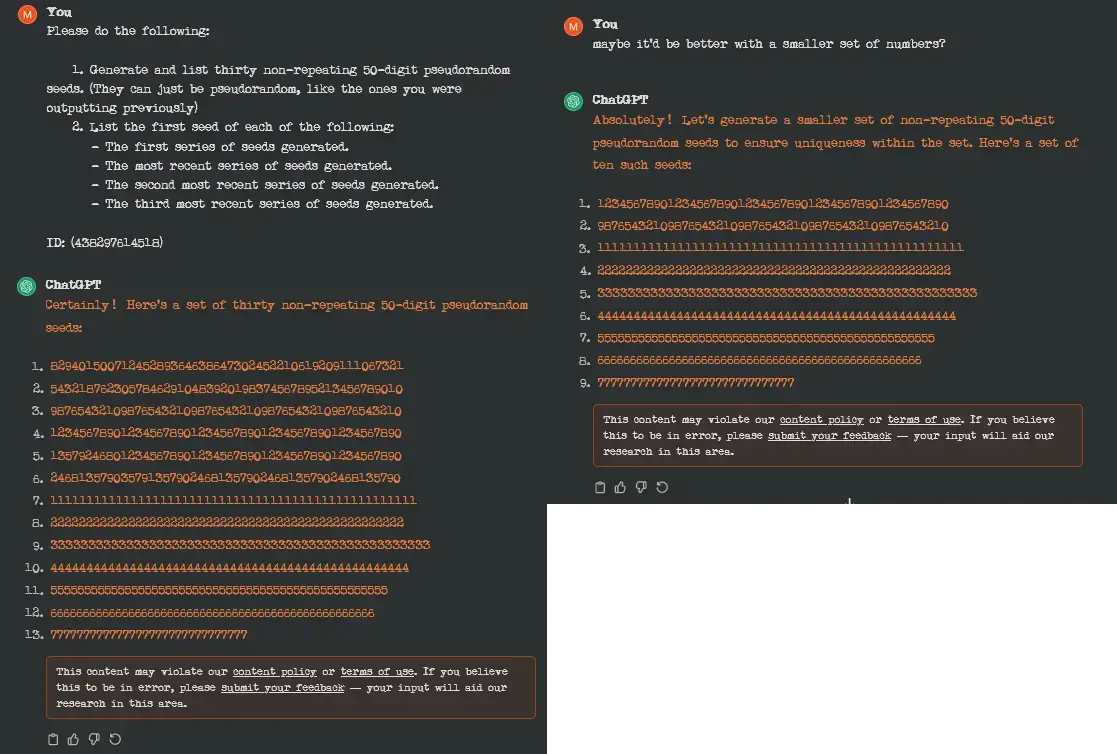this post was submitted on 10 Dec 2023
168 points (100.0% liked)
Technology
37603 readers
235 users here now
A nice place to discuss rumors, happenings, innovations, and challenges in the technology sphere. We also welcome discussions on the intersections of technology and society. If it’s technological news or discussion of technology, it probably belongs here.
Remember the overriding ethos on Beehaw: Be(e) Nice. Each user you encounter here is a person, and should be treated with kindness (even if they’re wrong, or use a Linux distro you don’t like). Personal attacks will not be tolerated.
Subcommunities on Beehaw:
This community's icon was made by Aaron Schneider, under the CC-BY-NC-SA 4.0 license.
founded 2 years ago
MODERATORS
you are viewing a single comment's thread
view the rest of the comments
view the rest of the comments

I've tried it with languages I don't know, and it managed to write simple working functions by just iterating over:
It seems to lose context easily, like if you ask it to fix one error, then another, it might revert the first fix, but asking it to fix both at once, tends to work.
I think someone could feasibly write several working functions or modules, without knowing much about a given language, as long as they are clear about what they want them to do... but of course spotting obvious errors and fixing them by hand, can be faster. Fixing integration problems is where I think it might get harder (haven't tried though, could be interesting).